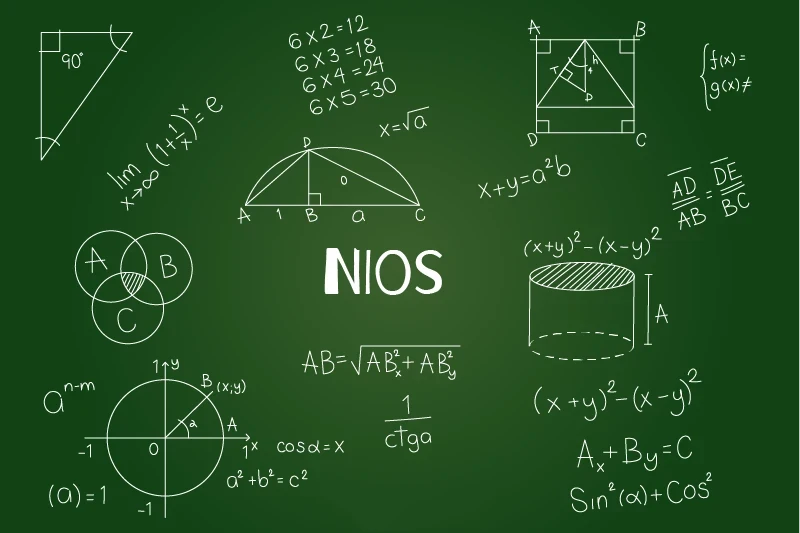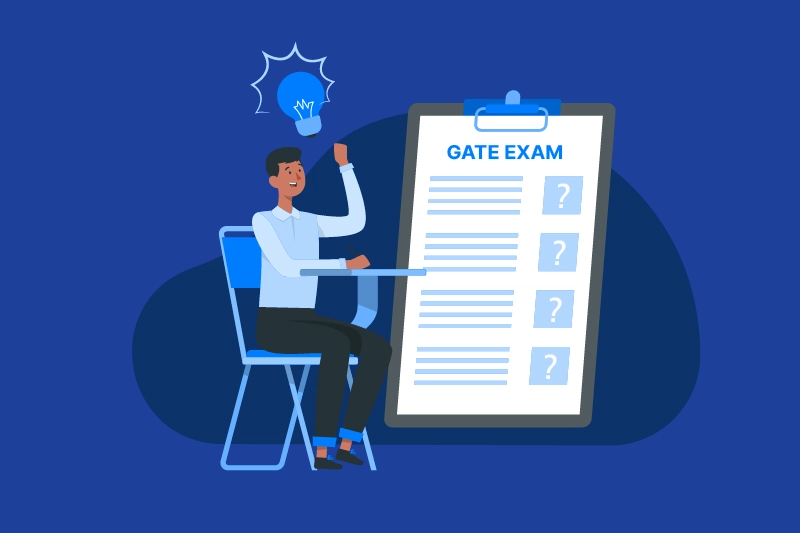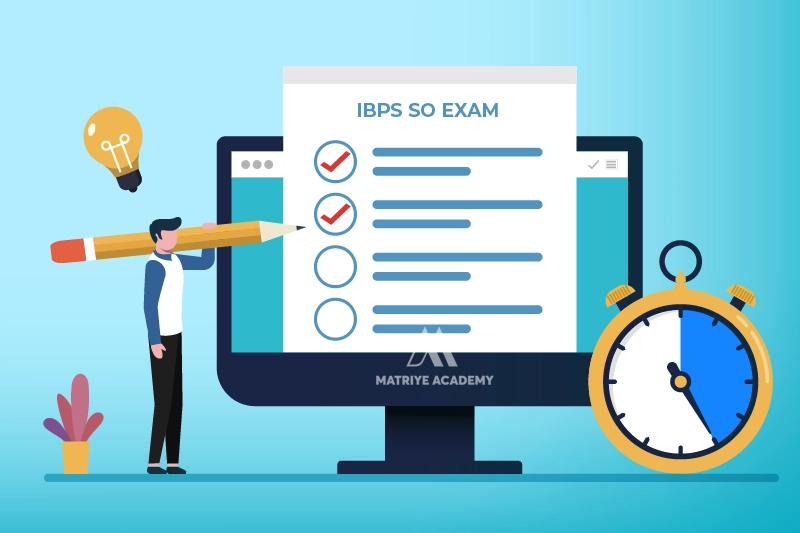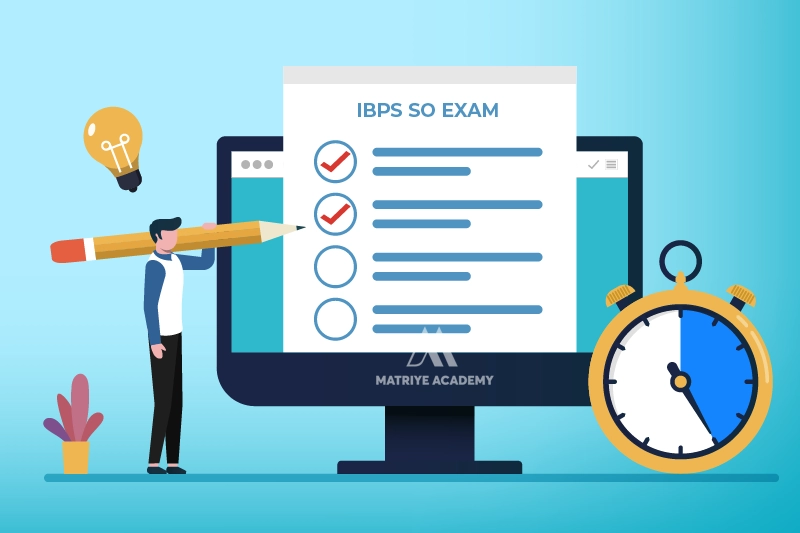
-
-
-
Advance your career
In 3-9 months, gain the skills to break into a new career or take your career to the next level.
10th
View allADVANCED MANAGEMENT PROGRAMME (MANUFACTURING AND OPERATIONS)
View allAGNIVEER MR
View allAGNIVEER SSR
View allALLAHABAD HC RO/ARO
View allAnthropology (B.Sc Anthropology)
View allArtificial Intelligence
View allASSOCIATION OF CHARTERED CERTIFIED ACCOUNTANTS [ACCA]
View allB.A (Hons.) Business Economics
View allB.A Geography
View allB.A Hons (English)
View allB.A. - Public Administration
View allB.A. Economics
View allB.A. English
View allB.A. in Fashion and Textile Design
View allB.A. in Jewellery and Accessory Design
View allB.A. in Political Science
View allB.A. in Visual Communication
View allB.A. Journalism and Mass Communication
View allB.A. LLB
View allB.Com (Hons.)
View allB.Ed or Bachelor of Education
View allB.Ed or Bachelor of Education in Physical Science
View allB.Sc - Computer Science
View allB.Sc - Electronics
View allB.Sc - Forensic Science
View allB.Sc - Genetics
View allB.Sc - Geology
View allB.Sc - Home Science
View allB.Sc - Horticulture
View allB.Sc - Life Sciences
View allB.Sc - Microbiology
View allB.Sc - Statistics
View allB.Sc - Zoology
View allB.Sc in Animation
View allB.Sc in Physiology
View allB.Sc LLB (B.Sc LLB)
View allB.Sc. (Hons.) Chemistry
View allB.Sc. (Hons.) Computer Science
View allB.Sc. (Hons.) Mathematics
View allB.Sc. (Hons.) Physics
View allB.Sc. Agriculture
View allB.Sc. Biochemistry
View allB.Sc. Biotechnology
View allB.Sc. Nursing
View allB.Tech - Automobile Engineering
View allB.Tech - Biochemical Engineering
View allB.Tech - Ceramic Engineering
View allB.Tech - Genetic Engineering
View allB.Tech - Instrumentation Engineering
View allB.Tech - Mechatronics Engineering
View allB.Tech - Mining Engineering
View allB.Tech - Production Engineering
View allB.Tech - Telecommunication Engineering
View allB.Tech - Textile Engineering
View allB.Tech : Mechanical Engineering
View allB.Tech-Artificial Intelligence
View allB.Tech-Chemical Engineering
View allB.Tech-Civil Engineering
View allB.Tech-Computer Science Engineering
View allB.Tech-Electrical Engineering
View allB.Tech-Electronics and Communications Engineering
View allB.Tech-Mechanical Engineering
View allBA LLB (BA LLB)
View allBachelor of Accounting and Finance (BAF)
View allBachelor of Audiology & Speech Language Pathology (BASLP)
View allBachelor of Banking & Insurance (BBI)
View allBachelor of Business Administration (BBA)
View allBachelor of Computer Applications (BCA)
View allBachelor of Design (B.Des)
View allBachelor of Education (B.Ed)
View allBachelor of Education (B.Ed) in History
View allBachelor of Education (B.Ed) Psychology
View allBachelor of Education (BE.d) English
View allBachelor of Education (BEd) Commerce
View allBachelor of Education (BEd) in Physical Education
View allBachelor of Education in Hindi
View allBachelor of Education in Tamil [B.Ed] (Tamil)
View allBachelor of Elementary Education (B.El.Ed)
View allBachelor of Financial Markets (BFM)
View allBachelor of Fine Arts
View allBachelor of Management Studies (BMS)
View allBachelor of Mass Communication (BMC)
View allBachelor of Mass Media (BMMC)
View allBachelor of Multimedia Communication (BMMC)
View allBachelor of Optometry
View allBachelor of Optometry (BOPTM)
View allBachelor of Physical Education (B.P.Ed)
View allBachelor of Tourism and Travel Management (BTTM)
View allBachelor of Visual Communication (B.V.C)
View allBachelor of Visual Communication (BVC)
View allBachelor of Vocation (B.Voc) in Software Development
View allBachelors in Banking and Insurance (BBI)
View allBachelors of Commerce and Bachelor of Legislative Law (B.Com LLB)
View allBBA LLB
View allBEd Political Science
View allBIHAR CGL TEST SERIES
View allBIHAR CIVIL COURT
View allBIHAR DAROGA
View allBIHAR PROHIBITION CONSTABLE
View allBOB PO
View allBOB SO
View allBOI SO
View allBPSC HEAD MASTER
View allBPSC SANITARY & WM
View allBusiness Analytics
View allCANARA BANK PO
View allCAT
View allCAT Exam
View allCBI SO
View allCBSE 5
View allCBSE 7
View allCBSE 1
View allCBSE 11th
View allCBSE 12TH
View allCBSE 2
View allCBSE 3
View allCBSE 4
View allCBSE 6
View allCBSE 8
View allCBSE 9TH
View allCBSE CTET
View allCDS
View allCERTIFICATE IN BUSINESS ANALYTICS
View allCertificate Course in Accounting
View allCertificate Course in Banking
View allCERTIFICATE COURSE IN BANKING
View allCERTIFICATE COURSE IN BUSINESS ANALYTICS
View allCERTIFICATE COURSE IN C++
View allCERTIFICATE COURSE IN COMMUNICATIVE ENGLISH
View allCERTIFICATE COURSE IN COMPUTER APPLICATION [CCA]
View allCertificate Course in Fashion Design
View allCERTIFICATE COURSE IN FINANCIAL ACCOUNTING & TAXATION [CCFAT]
View allCERTIFICATE COURSE IN FRENCH
View allCERTIFICATE COURSE IN FUNCTIONAL ENGLISH
View allCERTIFICATE COURSE IN GERMAN
View allCERTIFICATE COURSE IN INFORMATION TECHNOLOGY
View allCertificate Course in Interior Design
View allCERTIFICATE COURSE IN INTERIOR DESIGN
View allCertificate Course in JAVA
View allCERTIFICATE COURSE IN JAVA
View allCERTIFICATE COURSE IN JOURNALISM
View allCERTIFICATE COURSE IN PHOTOGRAPHY
View allCERTIFICATE COURSE IN PHYSIOTHERAPY
View allCERTIFICATE COURSE IN SPANISH
View allCERTIFICATE COURSE IN SPOKEN ENGLISH
View allCertificate Course in Stock Market
View allCERTIFICATE COURSE IN STOCK MARKET
View allCertificate Course in Tally
View allCERTIFICATE COURSE IN TALLY
View allCERTIFICATE COURSE IN YOGA
View allCertificate courses in C ++
View allCERTIFICATE IN ACCOUNTING
View allCertificate in Animation
View allCERTIFICATE IN ANIMATION
View allCertificate in Auto CAD
View allCERTIFICATE IN AUTO CAD
View allCertificate in CAD
View allCERTIFICATE IN CAD
View allCertificate in Cloud Computing
View allCERTIFICATE IN CLOUD COMPUTING
View allCertificate in Computer Application
View allCERTIFICATE IN COSMETOLOGY
View allCERTIFICATE IN DISASTER MANAGEMENT [CDM]
View allCERTIFICATE IN ENGLISH
View allCERTIFICATE IN HINDI
View allCERTIFICATE IN HUMAN RESOURCES
View allCertificate in Information Technology
View allCERTIFICATE IN INSURANCE SERVICES
View allCERTIFICATE IN LABORATORY TECHNIQUES [CPLT]
View allCERTIFICATE IN PROJECT MANAGEMENT
View allCERTIFICATE IN TOURISM AND TRAVEL MANAGEMENT
View allCERTIFICATE IN WEB DESIGNING
View allCertificate in Web Designing.
View allCERTIFICATE PROGRAM IN SUPPLY CHAIN MANAGEMENT
View allCERTIFICATE PROGRAMME IN SALES AND MARKETING
View allCERTIFIED COURSE IN FOOD AND NUTRITION
View allCERTIFIED FINANCIAL PLANNER [CFP]
View allCHARTERED ACCOUNTANT
View allChartered Financial Analyst
View allchinese
View allCISF CONSTABLE/TRADESMEN
View allCIVIL SERVICES
View allCLAT
View allCLAT EXAMS
View allCloud Computing
View allCOMBINED GEO-SCIENTIST
View allCOMBINED MEDICAL SERVICES
View allContent Writing
View allCraftsmanship Course in Food Production
View allCRPF ASI/HC
View allCRPF CONSTABLE TRADESMAN
View allCRPF SI & ASI
View allCS (Company Secretary)
View allCUET
View allCyber Security
View allD.EL.Ed.
View allData Analytics
View allData Science
View allDigital Marketing
View allDiploma in 3D Animation
View allDiploma in Advertising and Marketing
View allDiploma in Airline, Travel and Tourism Management
View allDiploma in Animation and Multimedia
View allDIPLOMA IN ARCHITECTURE ENGINEERING
View allDIPLOMA IN AUTOMOBILE ENGINEERING
View allDiploma in Bakery and Confectionery
View allDIPLOMA IN BIOMEDICAL ENGINEERING
View allDIPLOMA IN CHEMICAL ENGINEERING
View allDIPLOMA IN CIVIL ENGINEERING
View allDiploma in Communicative English
View allDIPLOMA IN COMPUTER ENGINEERING
View allDIPLOMA IN COMPUTER SCIENCE AND ENGINEERING
View allDIPLOMA IN DENTAL HYGIENIST
View allDIPLOMA IN DENTAL MECHANICS
View allDiploma in education
View allDIPLOMA IN ELECTRICAL & ELECTRONICS ENGINEERING
View allDIPLOMA IN ELECTRICAL ENGINEERING
View allDIPLOMA IN ELECTRONICS ENGINEERING
View allDiploma in elementary education
View allDiploma in Engineering
View allDiploma in Event Management
View allDIPLOMA IN FINE ARTS
View allDiploma in Food and Beverage Services
View allDiploma in Gemology
View allDiploma in Hotel Management (DHM)
View allDiploma in Information Technology
View allDIPLOMA IN INFORMATION TECHNOLOGY
View allDiploma in Interior Designing
View allDiploma in Journalism and Mass Communication (DJMC)
View allDIPLOMA IN MECHANICAL ENGINEERING
View allDIPLOMA IN MECHATRONICS
View allDiploma in Medical Lab Technology
View allDiploma in Medical Laboratory Technology (DMLT)
View allDIPLOMA IN MINING ENGINEERING
View allDiploma in Multimedia
View allDiploma in Nursing
View allDiploma in Nursing Care Assistant (DNCA)
View allDiploma in Nutrition and Dietetics
View allDiploma in Office Management
View allDIPLOMA IN PETROLEUM ENGINEERING
View allDiploma in Photography
View allDiploma in Physiotherapy
View allDIPLOMA IN PRODUCTION ENGINEERING
View allDiploma in Radiological Technology
View allDiploma in Rural Healthcare
View allDiploma in Scriptwriting/Creative Writing
View allDiploma in Sound Recording
View allDiploma in Travel & Tourism
View allDiploma in Visual Merchandising
View allDiploma in X-Ray Technician
View allEmail-Marketing
View allEPFO
View allFashion Designer
View allFCI MANAGEMENT TRAINEE
View allFEDERAL BANK PO
View allFull-Stack Developer
View allGATE
View allGraphic Design
View allHARCO BANK
View allHPSC PGT
View allHSSC Canal Patwari
View allHSSC GRAM SACHIV
View allIB SA/EXE & MTS/GEN
View allIBPS CLERK
View allIBPS PO
View allIBPS RRB OFFICE ASSISTANT
View allIBPS RRB OFFICER SCALE 1
View allIBPS SO Exam
View allIBPS Specialist Officer Exams
View allICAR
View allIIBF JE
View allINDIAN AIRFORCE APPRENTICE
View allINDIAN BANK COST GUARD (GD/DB)
View allINDIAN BANK PO
View allINDIAN BANK SO
View allINDIAN ECONOMIC SERVICE
View allINDIAN ER.SERVICES
View allINDIAN FOREST SERVICE
View allINDIAN NAVY AA/SSR
View allIPPB
View allJH POLICE RO
View allJK BANK PO
View allJK POLICE CONSTABLE
View allJob Oriented
View allJSSC EXCISE AND PROHIBITION
View allKG
View allLAKHSMI VILAS BANK PO
View allLDCE
View allLIC AAO
View allLIC ADO
View allLIC HFL
View allLL.M - Criminal Law
View allLL.M - Cyber Law
View allLL.M - International Law
View allLL.M - Labour Law
View allM.A. - Public Administration
View allM.A. in Economics
View allM.A. in English
View allM.A. Political Science
View allM.A. Rural Development
View allM.A.in History
View allM.Sc - Geoinformatics
View allMachine Learning
View allMaster of Education (M.Ed)
View allMaster of Law (LL.M)
View allMaster of Mass Communication (MMC)
View allMasters in Journalism and Mass Communication (MJMC)
View allMasters of Business Administration (MBA)
View allMAT
View allMBA - Communication Management
View allMBA - Customer Relationship Management (MBA CRM)
View allMBA - Environmental Management
View allMBA - Healthcare & Hospital Management
View allMBA - Hospitality Management
View allMBA - Logistics and Supply Chain Management
View allMBA - Materials Management
View allMBA - Media Management
View allMBA - Natural Resource Management
View allMBA - Operations Management
View allMBA - Project Management
View allMBA - Retail Management
View allMBA - Risk Management
View allMBA - Rural Development Management
View allMBA - Sales Management
View allMBA - Sports Management
View allMBA - Sustainable Management
View allMBA - Technology Management
View allMBA-Finance
View allMBA-Hr
View allMBA-Insurance
View allMBA-IT
View allMBA-Marketing
View allMCM: Masters of Computer Management
View allMP PATWARI
View allMP PSC
View allMP TET
View allMPPSC FOREST SERVICE
View allNAINITAL BANK
View allNDA & NA
View allNIOS 10
View allNIOS 11
View allNIOS 12
View allNIOS D.EL.ED.
View allNTPC CBT
View allOICL RECRUITMENT
View allOSSSC RECRUITMENT
View allPATNA HC STENO
View allPGP - Tax Management
View allPost Graduate Diploma in Technical Writing
View allProgramming
View allProject Management
View allRBI ASSISTANT
View allRBI Grade B Exam
View allRRB ASSISTANT LOCO PILOT
View allRRB Group D.
View allRSCB
View allRSMSSB COMPUTOR
View allRSMSSB FOREST GUARD
View allRSMSSB INFORMATICS ASSISTANT
View allRSMSSB JE
View allRSMSSB LAB TECH
View allRSMSSB LIB
View allRSMSSB PATWARI
View allRSMSSB PHARMACIST
View allSBI Clerk
View allSBI Clerk 2024
View allSBI PO
View allSIDBI GRADE A
View allSIDBI GRADE B
View allSocial Media Marketing
View allSoft Skills
View allSoftware Development.
View allSSC SELECTION POST
View allUIIC ASSISTANT
View allUPPSC ASST.PRO
View allUPPSC NURSE
View allUPPSC PROGRAMMER
View allUPSSSC ATA
View allUPSSSC INSTRUCTOR
View allUPSSSC VDO
View allVCBL PO
View allWealth Management
View allWeb Designing
View allXAT
View allDiploma in Cosmetology
View all
-
-
-
Advance your career
In 3-9 months, gain the skills to break into a new career or take your career to the next level.
-
-
-
Advance your career
In 3-9 months, gain the skills to break into a new career or take your career to the next level.
-
-
-
Advance your career
In 3-9 months, gain the skills to break into a new career or take your career to the next level.
Arts And Humanities.
No courses found
Business
View allCertificate
View allComputer Science
No courses found
Graphic Design
No courses found
Health
No courses found
Information Technology
View allLanguage Learning
No courses found
Math And Logic
No courses found
Physical Science And Engineering
No courses found
Social Science
No courses found
Soft Skills
No courses found
-
-
-
Find your new career
Breakthrough pricing on 100% online degrees designed to fit into your life.
CERTIFICATE IN ANIMATION
No subjects found
Get started
-
-
-
Find your new career
Breakthrough pricing on 100% online degrees designed to fit into your life.
CERTIFICATE COURSE IN COMMUNICATIVE ENGLISH
No subjects found
CERTIFICATE COURSE IN FRENCH
No subjects found
CERTIFICATE COURSE IN FUNCTIONAL ENGLISH
No subjects found
CERTIFICATE COURSE IN GERMAN
No subjects found
CERTIFICATE COURSE IN SPANISH
No subjects found
CERTIFICATE COURSE IN SPOKEN ENGLISH
No subjects found
CERTIFICATE IN ENGLISH
No subjects found
CERTIFICATE IN HINDI
No subjects found
CERTIFICATE IN INSURANCE SERVICES
No subjects found
DIPLOMA IN FINE ARTS
No subjects found
Get started
-
-
-
Find your new career
Breakthrough pricing on 100% online degrees designed to fit into your life.
No courses found
Get started
-
-
-
Find your new career
Breakthrough pricing on 100% online degrees designed to fit into your life.
Certificate Course In Accounting
No subjects found
Certificate Course In Banking
No subjects found
Certificate Course In Interior Design
No subjects found
Certificate Course In Stock Market
No subjects found
Certificate Course In Tally
No subjects found
Get started
-
-
-
Find your new career
Breakthrough pricing on 100% online degrees designed to fit into your life.
Certificate Course In Fashion Design
No subjects found
Certificate In Auto CAD
No subjects found
Certificate In CAD
No subjects found
Chinese
No subjects found
Get started
-
Goals
Departments
-
Exploring the Elements of Excellence
- Home
- Exploring the Elements of Excellence
Exploring the Elements of Excellence
Are you a CBSE Class 12 student preparing to delve into the fascinating world of Chemistry? Welcome to our comprehensive guide to CBSE Class 12 Chemistry. In this blog, we'll demystify the Chemistry syllabus, provide essential study tips, and offer expert insights to help you conquer this intricate subject. Let's embark on this chemical journey together!
CBSE 12th Chemistry: Uncovering the Chemical Universe
Navigating the CBSE Class 12 Chemistry Syllabus
To excel in CBSE Class 12 Chemistry, it's crucial to understand the syllabus. The Chemistry curriculum is divided into several units:
1. Solid State
- Classification of solids
- Crystal lattice and unit cells
- Types of crystalline solids
- Imperfections in solids
2. Solutions
- Types of solutions
- Concentration terms
- Colligative properties
- Ideal and non-ideal solutions
3. Electrochemistry
- Redox reactions
- Electrochemical cells
- Nernst equation
- Conductance of electrolytic solutions
4. Chemical Kinetics
- Rate of a reaction
- Factors affecting rate
- Integrated rate equations
- Arrhenius equation
5. Surface Chemistry
- Adsorption
- Catalysis
- Colloids
- Emulsions
6. General Principles and Processes of Isolation of Elements
- Occurrence of metals
- Extraction of metals
- Refining of metals
- Uses of metals and non-metals
7. The p-Block Elements
- Group 15, 16, and 17 elements
- Trends in properties
- Allotropes of sulfur and phosphorus
- Chlorine and its compounds
8. The d- and f-Block Elements
- Transition metals
- Lanthanoids and actinoids
- Magnetic properties
- Inner transition elements
Effective Study Tips for CBSE Class 12 Chemistry
To master CBSE Class 12 Chemistry, consider these study tips:
1. Conceptual Understanding
Focus on understanding the fundamental concepts rather than rote memorization. Chemistry is about grasping the principles.
2. Regular Practice
Solve a variety of problems from your textbook, reference books, and previous years' question papers. Practice is the key to success in Chemistry.
3. Visual Aids
Use diagrams, chemical structures, and visual aids to grasp complex chemical reactions. Visualization can make abstract concepts more tangible.
4. Seek Guidance
Don't hesitate to ask your Chemistry teacher or peers for assistance if you find certain topics challenging. Collaboration and discussion can provide new perspectives.
Expert Insights for CBSE Class 12 Chemistry
Chemistry is a dynamic field. Explore online resources, chemistry forums, and scientific articles to gain insights from experienced chemists and researchers.
Practice with Previous Years' Papers
Solving previous years' question papers can familiarize you with the exam pattern and improve your problem-solving skills.
Conclusion
CBSE Class 12 Chemistry offers an exciting journey into the world of chemical reactions, electrochemistry, and the periodic table. By understanding the syllabus, adopting effective study habits, seeking expert guidance, and practicing regularly, you can excel in your CBSE Class 12 Chemistry exams. So, embark on this scientific adventure, explore the mysteries of Chemistry, and enjoy your exploration of the chemical world. Good luck!
For more information
Download Matriye Academy App






































































Leave a Comment